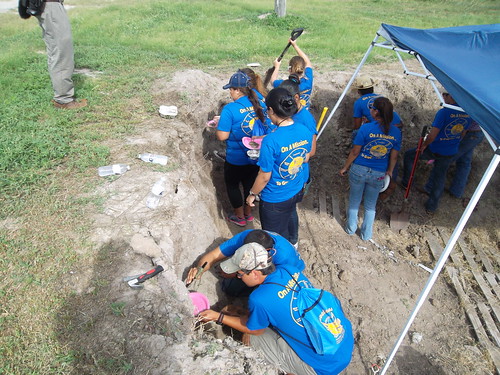
The lack of women and minority representation in the professional agricultural workforce has become so pronounced that in STEM Stratplan 2013 President Obama called for an “all-hands-on-deck approach to science, technology, engineering, and math” (STEM) education.
According to the White House Initiative on Educational Excellence for Hispanics, despite accounting for 16 percent of the U.S. population, Hispanics earned only 8 percent of all certificates and degrees awarded in STEM fields.
Texas A&M University-Kingsville (TAMUK) has answered the President’s call by leading a multi-institution program that encourages under represented students to pursue STEM degrees and careers as leaders in agriculture. Participants of the STEP UP to USDA Career Success (Science, Technology, and Environmental Programs for Undergraduate Preparation to USDA Career Success) program receive intensive hands-on training and internships at four U.S. Department of Agriculture (USDA) agencies: Natural Resources Conservation Service, Agricultural Marketing Service, Agricultural Research Service, and Animal and Plant Health Inspection Service.
USDA’s National Institute of Food and Agriculture (NIFA) supported the STEP UP program with a $3.3 million grant in 2011. TAMUK’s partner institutions include University of Texas-Pan American, Del Mar College, Texas State Technical College, and South Texas College. NIFA helps HSIs develop and operate programs through its HSI Education Grants program; $9.9 million in 2015 and a projected $8.8 million in 2016.
While STEP UP supports some students seeking masters and doctorate degrees, its main focus is on undergraduates.
“One of the main aspects of the grant was to create an environment that would allow a seamless transition for students to earn degrees that would position them for a job with USDA,” said Tanner Machado, co-project director and assistant professor with TAMUK’s Dept. of Animal, Rangeland & Wildlife Sciences. “Community colleges were included to introduce students to the value of pursuing a B.S. degree, which would make them marketable to USDA.”
To date, more than 200 students have participated in the program’s intensive short courses, which expose them to multiple agricultural disciplines and prepare them for their USDA internships.
“While at the short course the students receive hands-on experience in fields such as soil and environmental science, plant science, animal science, meat science, wildlife science, entomology, and biotechnology,” Machado said.
A recent study by Purdue University reflects a critical need for programs such as STEP UP. The report shows the food, agriculture, renewable natural resources, and environment fields have about 57,900 high-skilled job openings annually. However, the report also shows there are only about 35,400 new U.S. graduates with a bachelor’s degree or higher in agriculture-related fields, a shortfall of about 22,500.
STEP UP poses a win-win scenario for all involved – students, who get the opportunity to discover the types of jobs they may excel, and the field of agriculture, which receives an infusion of diverse, well-educated career professionals.
NIFA invests in and advances agricultural research, education and extension and seeks to make transformative discoveries that solve societal challenges.


